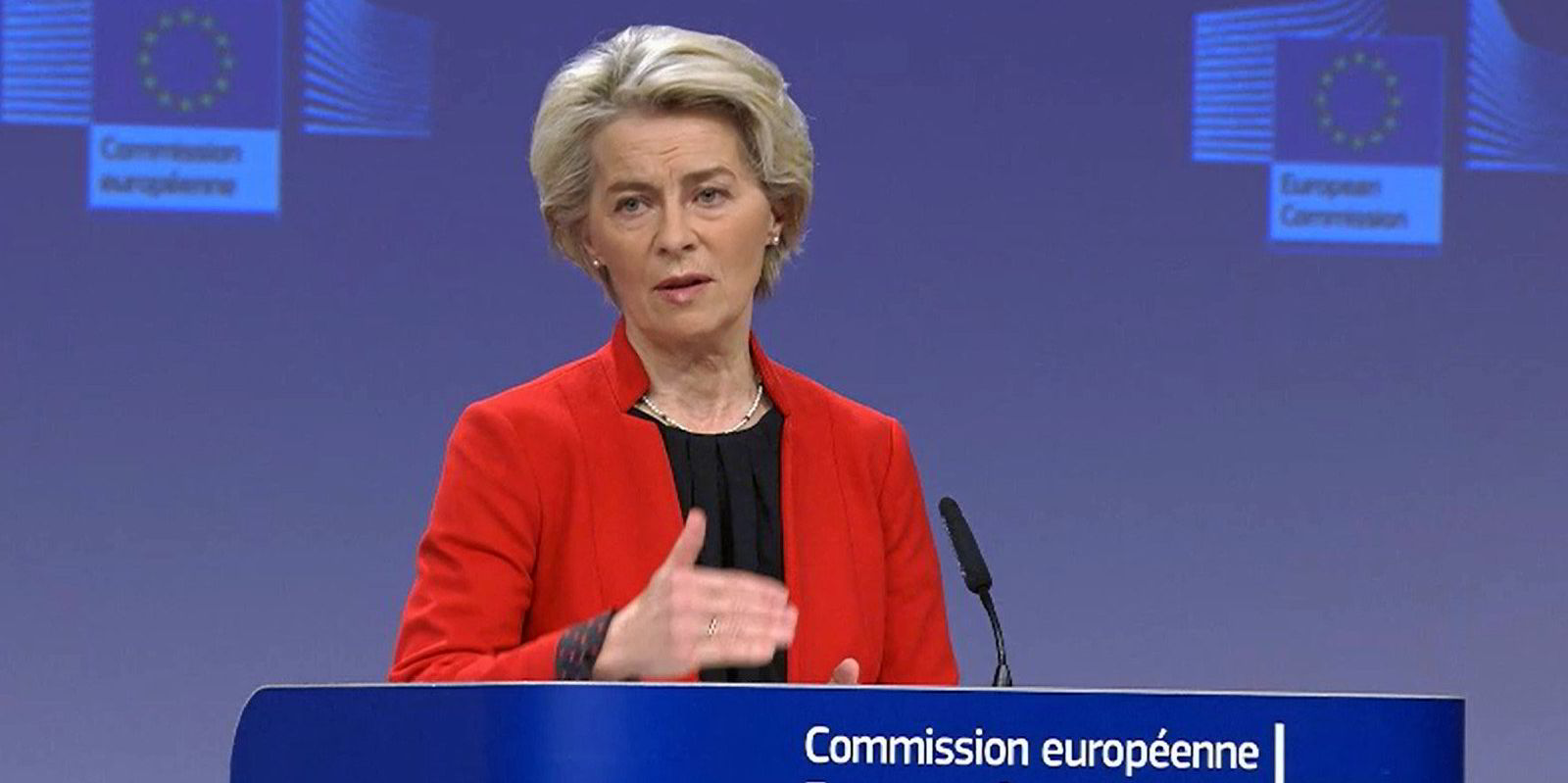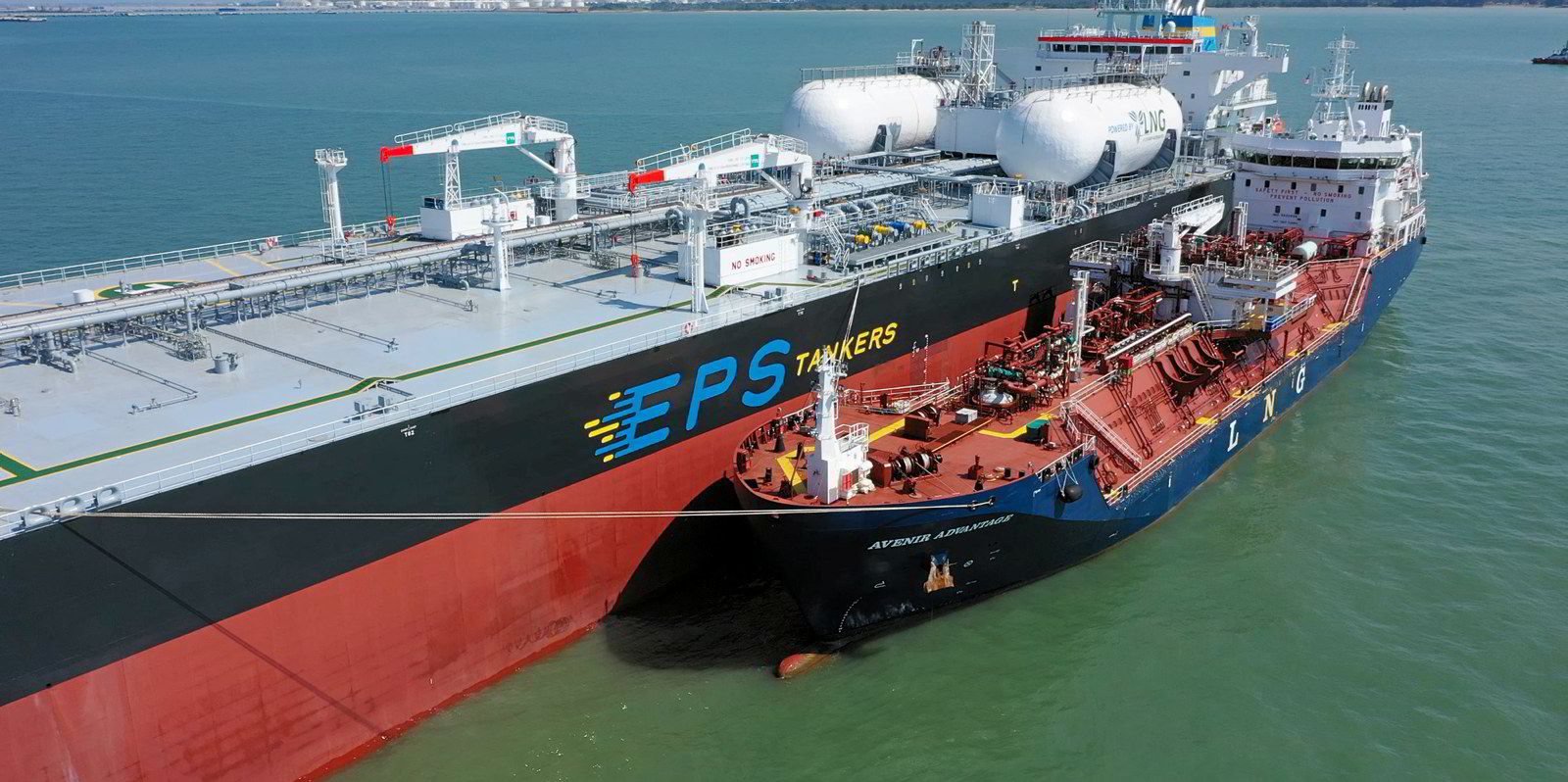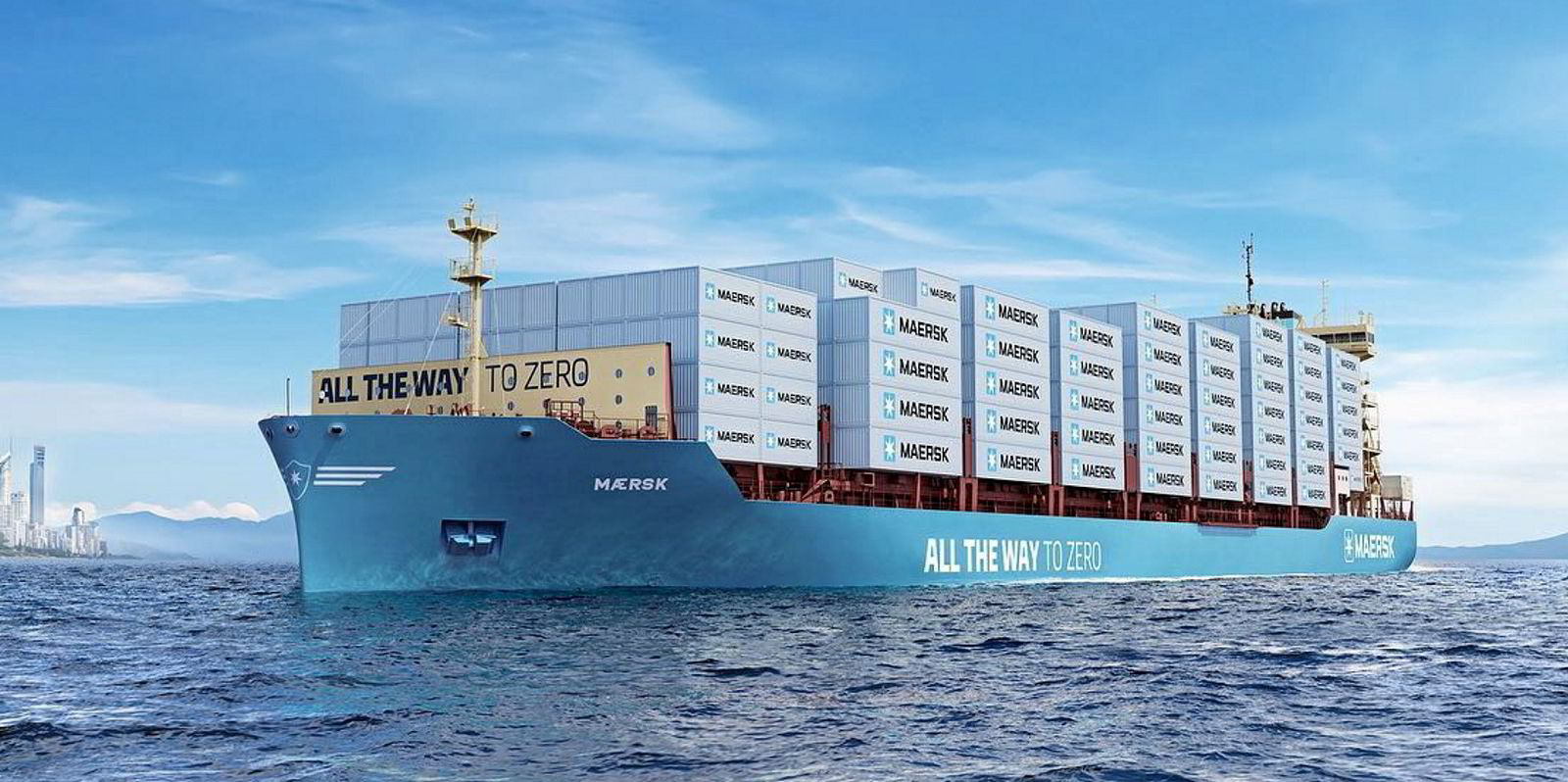Ursula von der Leyen, the president of the European Commission, will be named godmother of the world’s first container vessel that will be able to sail on green methanol.
AP Moller-Maersk’s new 2,100-teu feeder vessel will be formally named by the EC president at a ceremony in Copenhagen on 14 September when it arrives on its maiden voyage, before heading to its regular operational route in the Baltic Sea.
The Danish-flagged vessel’s arrival is a milestone in Maersk’s plans to achieve net zero greenhouse gas emissions by 2040 across its entire business.
Maersk aims to transport a minimum of 25% of its ocean cargo using green fuels by 2030, compared to a 2020 baseline, and the feeder ship is a first step towards the long-term aim of gradually renewing the entire fleet to operate solely on green fuels.
The ship, which was built at Hyundai Mipo Dockyard, can run on very low-sulphur fuel oil or methanol, but while Maersk has been steadily ordering ships that can run on green methanol and securing future supplies of the fuel it is unclear if the second largest liner group will immediately have enough of it.
Maersk is due to announce more about its fuel supply efforts next week.
Last month, TradeWinds reported that Maersk is poised to order eight firm methanol-fuelled, 8,000-teu container ships, with four options, costing at least $1.38bn at China’s Yangzijiang Shipbuilding.
Maersk has teamed up with REintegrate, a subsidiary of Danish renewable energy company European Energy, to produce 10,000 tonnes of green methanol fuel for it. It has also agreed a deal with Proman, the world’s second-largest methanol producer, to supply 100,000 to 150,000 tonnes per year from a new plant in North America that aims to start operating in 2025.
The Danish group also has 18 newbuildings of 16,000 teu each under construction at Hyundai Heavy Industries. Costing an average of around $180m apiece, the vessels are due in 2024 and 2025.
Rival major box carrier MSC Mediterranean Shipping Company has said it will rely on a mix of zero-carbon fuels to lower emissions, adopting different solutions for newbuildings and existing ships, as it believes there is only enough green methanol today for five 15,000-teu container ships.
Some 255m tonnes of green methanol could be required for marine fuelling by 2050, engine designer MAN Energy Solutions has said.
Thomas Hansen, MAN’s head of two-stroke sales and promotion, told a recent webinar that 2.6m tonnes of the fuel, which is carbon-neutral if produced from a green energy source, is due to be delivered from 2024 to 2025 but the maritime sector is competing with other industries for supply.
Maersk’s feeder vessel will provide operational experience for its seafarers handling the new engines and using green methanol, Maersk said, as the company prepares to receive its larger ocean-going methanol engine-powered ships in 2024.
Maersk chief executive Vincent Clerc said the ship was the embodiment of the European Union’s green policies coming into action.
“Just a few years ago, this iconic ship was merely a vision,” he said. “Now, it is a reality, and we are honoured that Ursula von der Leyen has agreed to be its godmother.”
The ship will stay in Copenhagen harbour for about a week while it is the focal point of several events relating to the shipping industry’s effort to decarbonise.






